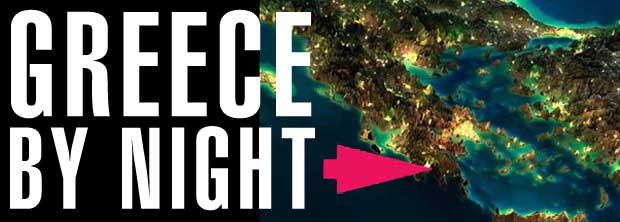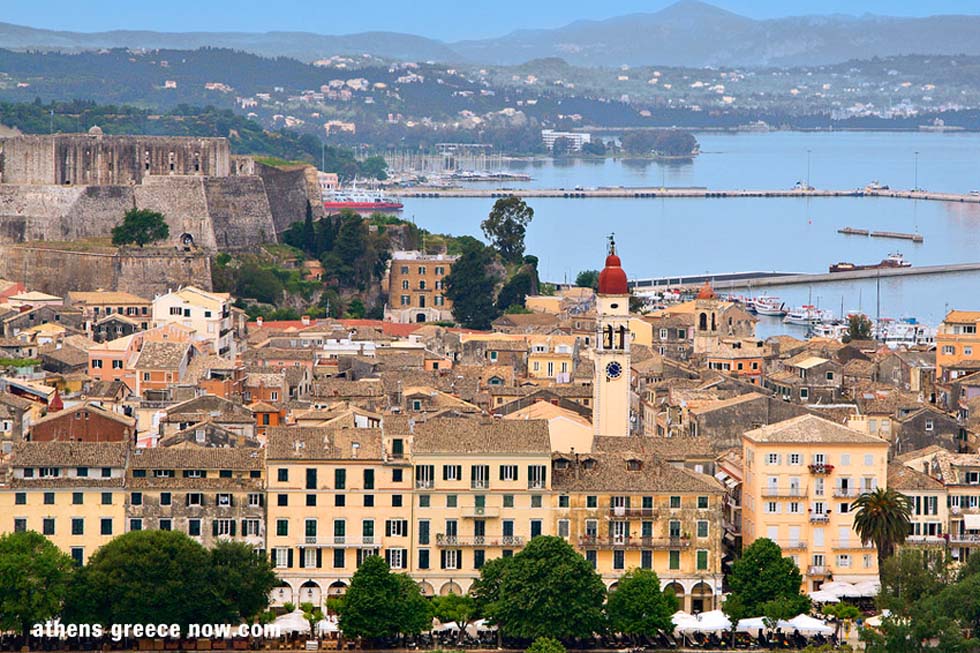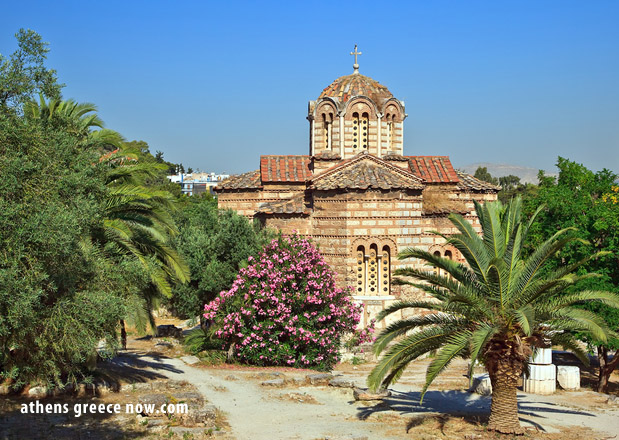NEWS ARCHIVE - AUGUST 2013
August 29, 2013
IMF says it is not talking about new program for Greece - Fox
"In our next review, we'll discuss developments on that front and see where we are," IMF spokesman Gerry Rice told reporters, referring to Greece's funding needs. "The numbers of course could change in either direction."
The IMF said the next review of Greece's rescue package will take place in the second half of September, although it was unclear whether it would be before or after German elections on September 22. Further money for indebted Greece is a politically sensitive topic in Germany, the euro zone's largest economy."
Rehn: Assessment next month for additional financing - Reuters
"Greece's international lenders will step up their assessment next month of how the sustainability of the country's finances can be ensured, the European Commission's economic chief said on Thursday.
The European Union, European Central Bank and International Monetary Fund first need to establish the facts "and then conclude what kind of additional financing needs there are," Olli Rehn told journalists at an economic conference in the Alpine village of Alpbach."
August 28, 2013
Why did Schaeuble break the Greek bailout taboo? - EU OBserver
"Solid economic data, record-low unemployment and a budget surplus at home are giving her tailwind. At 60 percent popularity, Merkel should not even feel threatened by her Social-Democratic rival, Peer Steinbrueck...
But then the unthinkable happened.
...finance minister Wolfgang Schaeuble uttered the phrase: "There will have to be another programme for Greece."
What was thought to be a total taboo before 22 September suddenly was out there.
...A TV debate between Merkel and Steinbrueck planned for the 1 September has suddenly found its main topic."
More than 1 mln French tourists expected to visit Greece in 2013 - eKathimerini
"French visitors are expected to inject about 900 million euros into the local economy by the end of 2013, Kathimerini said.
The number of French arrivals during the first half of 2013 is estimated at 358,000, up by 17.4 percent compared to the same period last year."
August 27, 2013
Merkel "Greece should never have been allowed in the euro" - UK Telegraph"The German leader’s outburst came as she attempted to prove to voters she maintains a tough stance on struggling euro countries, just a month before facing key elections.
“Greece shouldn’t have been allowed into the euro,” Ms Merkel told around 1,000 supporters of her Christian Democratic Union in Rendsburg on Tuesday.
“Chancellor Schroeder accepted Greece in [in 2001] and weakened the Stability Pact, and both decisions were fundamentally wrong, and one of the starting points for our current troubles.”
Ms Merkel reiterated her desire to see a strong single currency, but warned that this can only be achieved through reforms in struggling countries such as Greece.
“That [a unified euro area] is such a treasure, such a boon, that we can’t place it in doubt,” she told her supporters. “That’s why the euro is more than a currency. For this reason we’ve shown solidarity, but solidarity always linked to responsibility for reforms in those countries that experience our solidarity.”
"Greece doesn't need rescue, it needs a way out" - UK Guardian
"There is no doubt that the Greek programme has failed. In 2010 Greek public debt was just over €300bn, mostly privately held, two thirds of it by lenders abroad and governed by Greek law. The rational option would have been for Greece to declare default, seek a rapid restructuring of its debt and place its economy on a new footing. This would probably have meant exiting the European Monetary Union, a move with considerable costs but also major advantages in allowing the Greek economy to make a fresh start.
Instead, the EU, led by Germany, decided to "rescue" Greece by offering it massive fresh borrowing, while forcing it to submit to severe austerity and wage cuts. The results have been catastrophic: cumulative economic contraction approaching 25%, adult unemployment at nearly 30%, youth unemployment close to 65%, unprecedented poverty, destruction of the welfare state and humanitarian crisis in the urban centres."
August 26, 2013
Greece on track for additional aid: ECB Asmussen - NY Times
"But his comments fed into a debate set off last week when Mr. Asmussen’s former boss, Wolfgang Schäuble, the German finance minister, put Greece back on the public agenda, saying that more aid was certain, rather than merely very likely. Mr. Asmussen was a top aide to Mr. Schäuble before joining the European Central Bank in 2011.
Mr. Asmussen declined to comment on whether Mr. Schäuble had discussed his remarks ahead of time with Chancellor Angela Merkel. Her party, the Christian Democratic Union, has made what many Germans see as her deft management of the euro crisis a focus of her push for re-election."
August 25, 2013
Stournaras - we may need €10 billion more - BBC
"Yannis Stournaras said: "If there is need for further support to Greece, it will be in the order of about €10bn euros (£8.6bn; $13.4bn), or much smaller than the previous programmes."
Greece has already received two bailouts totalling about 240bn euros.
Meanwhile, Angela Merkel has warned about writing down any more Greek debt.
Germany's chancellor said a so-called haircut of Greek debt would be bad for the stability of the eurozone, which has seen a return in investor confidence after years of worrying about the future of the single currency following bailouts of several nations - most recently, Cyprus.
"I am expressly warning against a haircut," Mrs Merkel said. "It could trigger a domino effect of uncertainty with the result that the readiness of private investors to invest in the eurozone again falls to nothing."
Greece fits Merkel’s re-election plan not Italy or Spain - UK Globe and Mail
"...By superficially indulging the critics of another Greek bailout, she ensures that questions on the real horror scenario – the potential Europe-busting bailouts of Italy and Spain – remain safely off the agenda. Her election campaign began last week and, since then, she has eluded the tough economic questions. In this sense, she is both brilliant and lucky.
The German opposition parties tried hard to turn Greece into a vote-killer for Ms. Merkel, who has a double-digit lead in the popularity ratings, and utterly failed. It started on Tuesday, when German Finance Minister Wolfgang Schaeuble said, “There will be another program in Greece.”
His admission made news even though he was stating the obvious. Greece is still in deep recession – its economy contracted at a 4.6 per cent annual rate in the second quarter. A budget deficit of 4.3 per cent of gross domestic product is expected this year. The debt-to-GDP ratio will hit a crushing 170 per cent or more – unprecedented in modern Europe – by the end of 2013. The jobless rate is 27 per cent. The true shocker would be if Greece were to escape a third bailout.
...Since none of the main German political parties want to see a break-up of the 17-country euro zone and the main opposition party, the Social Democrats, has backed previous bailouts, the Greek crisis will go nowhere as an election issue.
Which is not to say that the crisis is gone. Since Ms. Merkel is economically astute, she would also know that Italy and Spain, the euro zone’s third- and fourth-largest economies, are the big powder kegs.
...Toss an unstable coalition government into the mix and and you have a recipe for Italy leaving the euro zone, willingly or not, before Greece, Ireland or Spain – the bailout triplets.
....Greece can be swept under the carpet; Italy and Spain cannot. It’s just a question of time before one of those two countries make the Greek crisis look like a fender bender."
August 24, 2013
Greece to ask Troika for more time before new cuts - eKathimerini"The government is going to attempt to convince the troika not to demand that Athens details 4.1 billion euros of new fiscal measures for 2015 and 2016 when officials from the European Commission, the European Central Bank and the International Monetary Fund visit Greece for the next review of the country’s adjustment program in September.
...The government’s main argument will be that Greece’s fiscal performance this year will beat the targets agreed with the troika. Athens will also argue that more time should be allowed for improvements to Greece’s tax administration to produce results.
...the government will also pin its hopes on the better use of European Union structural funds and the continuation of the 95 percent co-financing option, which means that Greece will need to provide just 5 percent of the money needed for these projects.
The first troika officials are due in Athens on September 16..."
August 22, 2013
Trans-Adriatic Pipeline good news for Greece - Forbes
"After a steady flow of dismal news, Greece’s energy aspirations received a boost this month with the choice of the Trans-Adriatic Pipeline to deliver gas from Azerbaijan to the European market.
The decision comes after years of proposals and competition surrounding which pipeline would finally link the offshore reserves to Western Europe. The choice of TAP puts that responsibility on a coalition made up of energy firms from across Europe, including Norway’s Statoil, BP, France’s Total, Belgium’s Fluxys, Germany’s E.ON and Switzerland’s Axpo, as well as the Azeri state oil company SOCAR."
Dijsselbloem: rethink on Greece for new bailout in 2014 - ABC News
"Jeroen Dijsselbloem, the Dutchman who leads the Eurogroup meetings of eurozone finance ministers, was questioned about similar remarks by German Finance Minister Wolfgang Schaeuble this week. Dijsselbloem was quoted by Het Financieele Dagblad Thursday as saying "the problems in Greece won't be solved in 2014, so something more will have to happen."
That Greece's finances remain strained is an open secret. The IMF estimates it will have a 9 billion-euro ($12 billion) funding shortfall by 2015. But many European politicians have avoided discussing a politically unpopular new bailout. Germany holds elections next month."
August 21, 2013
If Greece needs a third bailout, Europe had better find a formula that sticks - UK Guardian
"...A small loan package, to fill the hole already identified by the International Monetary Fund, would represent another dose of medicine that isn't working. The Greek economy, weighed down by austerity measures, would stumble along for a while – but a fourth package would loom sooner or later.
A better approach would see Greece's lenders take more pain up-front – get the debt down to manageable levels and hope to see economic growth reduce the burden further. Is Germany, after the election, prepared to support that idea? If it's not, we'll be talking about a fresh eurozone crisis by the end of the year."
August 19, 2013
Privatisation boss Stelios Stavridis dismissed - BBC
"Finance Minister Yannis Stournaras called for Stelios Stavridis to resign following a report that he had travelled on a plane belonging to a businessman who bought gambling firm Opap from the state.
Mr Stavridis had only been in the job for four months but had faced criticism for the slow pace of privatisations."
Tourism helps Greece to post wider surplus in June - UK Telegraph
"The lure of the Grecian sun, as well as a smaller trade gap, pushed up Greece's current account surplus - which measures the difference between imports and exports - to €663m (£565.5m) in June, from €73.1m a year ago.
Tourism receipts, the country's biggest revenue stream, rose 21pc year-on-year to €1.59bn in June, according to the Bank of Greece. This brings total tourism revenues in the first half of the year to €3.32bn, up 18pc compared with the same period last year."
August 16, 2013
Bundesbank sees new Greece bailout in 2014 - Las Vegas Sun
"The move would come months after Germany's Sept. 22 general election. Chancellor Angela Merkel's conservative government has been at pains to appear firm on Greece's international bailout, which is unpopular with many Germans."
Another era, another world: 1960s rural Greece - eKathimerini
"The picture of Greece that emerges in the photographs taken by Constantine Manos during his travels around the countryside in the early 1960s is a rocky, dusty, wild land with mostly unsmiling people. Even shots taken at weddings and festivals are dominated by a sense of sadness. In what is one of Manos’s most marvelous images of rural Greece at that time, musicians can be seen immersed in their playing: The tranquillity on their faces create the impression that the music has transported them elsewhere for a few precious moments, helping them to forget their daily toils.
Manos was born in North Carolina to Greek immigrant parents. He traveled to Greece for the first time in the early 1960s, visiting the islands and the countryside, capturing unique moments of life with his lens. He made another tour of the country in 1967 and in 1972 published a collection of photographs titled “A Greek Portfolio,” which are today on display at the Benaki Museum in Athens along with another 219 original prints that he donated to the foundation’s Photographic Archive and which weren’t included in the original publication.
...Manos’s photographs present rural Greece in a nutshell: fishermen untangling their nets, Cretan men sipping raki, sheep being sheared, women mourning in Mani, boys with shaved heads, babies asleep in the arms of their melancholic mothers, a priest carrying a lamb (to the slaughter?), farmers with their animals, a solid relationship between the living with their dead and with their land, musicians, graves tended by lonely women: These sound like images of a cleaner, purer Greece that is gone.
“But,” noted Tsokopoulos, “there is nothing nostalgic, picturesque or romantic about them, nothing is idealized. One sees how difficult life was then. And that is why the memory industry cannot use such photographs: Nothing is prettified to suggest that people then had purer hearts; there are no such stereotypes."
A collection of the Constantine Manos images were published in 1972 as book collection titled "A Greek Portfolio" and a revised version reprinted in 1999 with additional images.
August 15, 2013
5 Economic Lessons Europe Can Learn From Greece - Yahoo"By any reasonable measure, the IMF-European Union (EU) bailout package for Greece has been an unmitigated disaster.
As the IMF itself now acknowledges in a commendably frank report, over the past four years Greece’s economy has contracted by 25 percent and its unemployment rate has risen to a staggering 27-½ percent of the labor force. Yet despite this economic collapse, no meaningful economic recovery is in prospect anytime soon as Greece’s teetering coalition government is still obliged to pursue budget austerity and as Greek banks continue to restrict credit to both households and enterprises.
...If there is a single lesson that should have been learnt from Greece’s failed economic program it is that severe budget austerity within a euro straitjacket simply does not work. For without the ability to devalue its currency so as to boost export growth or the tourist sector as an offset to the negative impact of fiscal tightening on domestic demand, the country’s economy runs the real risk of entering a debilitating deflationary spiral. This is particularly the case in the context of a weak banking system that is confronted with increased amounts of non-performing loans and that restricts credit to households and companies."
Eurozone Recession End Is Cold Comfort for Greece - ABC News
"Greece's economy contracted 4.6 percent in the second quarter compared with a year earlier. While that is slightly less than in the previous quarter, it still leaves the country in an economic hole that some have termed a depression. The official forecast is that growth will only return in 2014, and it will take years before the economy reaches pre-crisis levels.
Greece triggered Europe's debt crisis in October, 2009 when it admitted it had underreported its budget deficit for years. It was the first of the continent's economies to get an international bailout. The policy of spending cuts and tax increases demanded by creditors to cure public finances has reduced the deficit but savaged the economy and society."
Greece needs a 21st Century Marshall Plan - eKathimerini
"At their White House meeting last week, U.S. President Barack Obama assured Greek Prime Minister Antonis Samaras of his support as Greece prepares for talks with creditors on additional debt relief amid record-high unemployment.
The U.S. should also endorse a new blueprint for recovery based on one of the most successful economic assistance programs of the modern era: the Marshall Plan.
It is clear by now that the European Union’s policies in Greece have failed. Projections that government spending cutbacks would stop the economy’s free-fall proved to be wildly optimistic. The 240 billion euro ($319 billion) bailout from the euro area and International Monetary Fund has shown little sign of success, and Greece is experiencing its sixth year of recession.
The spending cuts and tax increases, along with the dismissal of huge numbers of public-sector employees, demanded as a condition of the loans and assistance have only deepened the economic pain.
...A rebuilding plan could address Greece’s tremendous need to renovate schools, hospitals, libraries, parks, roads and bridges. Forests need to be replenished: Catastrophic fires have led to deforestation. Tourism once accounted for more than 25 percent of the economy; now, extraordinary beach cleanups are badly needed to attract visitors.
University graduates, after having been trained at public expense, are now forced to seek opportunity outside Greece. They could make valuable contributions, introducing information technology and other know-how to the government, health and education sectors. "
Corfu
Corfu, Greece, in the Ionian Sea
Santorini in the dark after power station fire - euronews
"A fire that broke out at a power station left the southern Aegean island without electricity for several hours.
The fire started at a power station in Monolithos, some 9 kilometers southeast of Fira, at around noon and was doused before it could cause major damage or injuries.
A navy vessel and a passenger ferry were dispatched to carry two power generators to the island for use until the power station is fully operational."
Golden Dawn's Racial Hatred - ABC News
"In Greece, a country crippled by debt and years of failed leadership, a young filmmaker went inside the hate-fueled, rebellious political party known as "Golden Dawn" to capture its members' vocal hostility against immigrants in a society on the brink.
Greece's ancient cities, where tourists can wander the shadows of the Acropolis and marvel at the origins of democracy and philosophy, are also dotted with shuttered businesses, gutted neighborhoods and vast unemployment -- more than 60 percent of young people are without a job -- causing widespread public fury.
Out of that vacuum of rage and suspicion marched Golden Dawn from the far-right, looking for someone to blame. "
Inside Greece's violent new anarchist groups - Reuters
"On a recent summer day, as the cafe was abuzz with chatter about two anarchists detained by police, a man barged in shouting that help was needed at a store attacked by far-right activists. Such extremists have been regularly blamed for the rise in street attacks during Greece's economic crisis, though they deny perpetrating such acts.
"Isn't it time for a revolution?" a 34-year-old anarchist watching the cafe scene said as he rolled a cigarette. "It's now or never. If we don't do something now, nothing will ever change."
Most media coverage of political radicals in Greece has focused on the far-right Golden Dawn party, which has risen to as much as 14 percent in voting polls after winning support with free food handouts for Greeks and fierce anti-immigrant rhetoric. But the country's economic crisis is also driving extremism on the left. "
August 13, 2013
3 reasons why Greece's budget surplus is a mirage - Fortune Magazine
"Although spending cuts have helped create a budget surplus for Greece, there's really no extra cash in the government's coffers.
...Greece pays a discounted rate of interest as part of its bailout package, but even then the payments are still substantial because of the scale of its debt. It currently stands at 157% of GDP
"...The overall point is the Greek debt situation is completely unsustainable," says Beim, adding that a quicker way for Greece to return to prosperity is for the country follow in the paths of Brazil and Mexico in the 1980s when the countries defaulted on their debts."
August 12, 2013
Contraction Shows Signs of Slowing for Greece - NY Times
"The Greek economy posted its 20th consecutive quarterly decline in the three months through June, government data showed on Monday, but a slower pace of contraction provided a glimmer of hope for beleaguered Greeks.
...Ben May, an economist in London with Capital Economics, said the latest number was “encouraging, as it looks like the quarterly pace of decline is slowing.” An analysis of the second-quarter figure suggested that G.D.P. might have ticked up by about one-tenth of a percent from the first quarter, he said.
“The troika’s forecast for a 4.2 percent annual decline in 2013 looks achievable,” Mr. May said.
Mr. May said that it was almost certain that some kind of government debt restructuring would be needed to achieve what the troika calls a sustainability target: a debt-to-G.D.P. ratio of 120 percent by 2020."
August 10, 2013
President Obama expresses support for Greek reform efforts - eKathimerini
"In comments to reporters at the White House, Obama expressed his conviction that Samaras is "committed to continuing these structural reforms" but said he agreed with the Greek premier that "in dealing with the challenges that Greece faces, we cannot simply look to austerity as a strategy." "It's important that we have a plan for fiscal consolidation to manage the debt, but it's also important that growth and jobs are a focus," he said.
...Samaras stressed once again that the sacrifices made by the Greek people "should not be in vain" and, according to sources, emphasized that efforts must be made to avert a new dispute between the European Union and the International Monetary Fund about how Greece's debt should be managed to avoid rattling investors.
The Greek premier also referred to the discovery of "huge energy resources in our region," noting that Greece could "realign" those resources together with Cyprus and Israel.
... A senior Greek government official said that Greece could produce 4.7 trillion cubic meters of natural gas in 30 years."
Greece says it needs budget surplus, growth to return to bond markets - Reuters
"Figures on Friday showing industrial production rose 0.4 percent June compared with the same month last year - the second monthly expansion this year - confirmed the economy may be crawling towards a recovery.
Petroleum products and pharmaceuticals drove a 4.2 percent jump in manufacturing production - the biggest manufacturing expansion since May 2008, just as Greece's recession began, according to central bank figures.
"This is undoubtedly a positive sign that the recession in industrial production may be bottoming out," said Platon Monokroussos, an Athens-based economist with Eurobank. "Yet we need to watch for more positive signs going forward to make sure that a recovery trend has been established."
Tax fraud still a huge problem in Greece - DW.Com
"Random checks by inspectors have shown that Greek authorities haven't been able so far to significantly rein in rampant tax fraud in the country. But drastic sanctions are meant to result in a change of behavior.
Nationwide spot checks found that almost one in two businesses in Greece was cheating on their taxes in some way.
A Finance Ministry statement released on Friday said 731 of the 1,465 companies scrutinized had violated tax laws. The highest rate of tax fraud was found on the islands of Evia and Skyros where 85 percent of businesses failed to comply with current tax legislation."
Venizelos: Greece 2/3rd of way through crisis - UK Independent
..."We need more GDP.”
He said that the country had been though six years of economic crisis – including two years before Greece accepted the reality of its situation, and that it now desperately needed the institutions of the EU and IMF to allow it to carry out growth-boosting measures instead of yet more fiscal tightening.
He said: “It’s very difficult to achieve our target through negative growth or through a very small positive growth. We need something more. Something more like specific programmes in order to end the unemployment situation.”
Economists are tentatively talking about signs that Greece’s economic decline is slowing. GDP is expected to shrink a further 4.5 per cent this year and possibly even grow by 0.6 per cent next year, albeit from a very low base."
August 9, 2013
Is President Obama right about Greece? - CNBC
"U.S. President Barack Obama offered some comfort to the embattled Greek population by hinting that the austerity drive may be tempered with other ways of restoring the economy to health.
Remarks made by the President following a meeting with Greek Prime Minister Antonis Samaras in the Oval Office Thursday suggested that the U.S. is moving towards a softer approach to Greece's rebuilding of its economy. Greece's GDP figures for the second quarter of the year are due on Monday, and are expected to show that the country's grim economic times are continuing."
August 8, 2013
US President Obama meeting with Samaras today - Bloomberg
"President Barack Obama will show U.S. support for Greece at a meeting today with Prime Minister Antonis Samaras as Greece prepares for more talks with creditors on additional debt relief amid record-high unemployment.
Cyprus unification, trade and counterterrorism initiatives also are on the agenda, the White House said in a statement ahead of the visit."
Samaras boasts of Greece "bastion of stability' - Washington Post
“If I had come here a year ago, you would have seen Greece being unstable around an area of stability. Now we look good compared to the region,” he joked at a meeting with the editorial board of The Washington Post on Wednesday.
Samaras is seeking a vote of confidence from Obama and support for his effort to return growth to Greece. The country has entered the fourth year in a program of tough austerity and structural reforms in return for loans from the International Monetary Fund and the European Union, in an effort to avoid default and an exit from the euro zone. The IMF estimates that Greece will reach a structural surplus this year, which is a precondition for its lenders to consider further debt relief.
Samaras did not shy from describing the tough economic reality on the ground, as Greece is going through its sixth straight year of recession, “a world record after the Great Depression,” as he put it. Unemployment has spiked to 27.5 percent, and the rate is more than 60 percent among young people.
...Greece aims to attract investors and investment funds that will provide cheap financing for small and medium-sized enterprises in an economy struggling for liquidity.
He is already welcoming American investors in his office, promising “the red carpet treatment rather than the usual Greek red-tape procedure,” as he put it."
Recent Statistics [JULY 2013]
Coloring is relative: If the category has improved since the last report, it is GREEN Worse numbers are BLACK . Data source is ELSTAT.
| Consumer price index | July 13/July 12 | -0.7 |
| Harmonized Index Consumer Prices | July 13/July 12 | -0.5 |
| Gross Domestic Product (GDP) | Q1 2013 | -5.6% |
| Unemployment rate* | Q1 2013 | 27.4% |
| Industrial Production (non-construction) | May 13 / May 12 | -4.6% |
| Turnover Retail Trade | May 13 / May 12 | -3.3 |
| Producer Price Index Industry | Jun 13/Jun 12 | -0.6% |
| Building (volume) | Apr 13 / Apr 12 | -19.7% |
| Population count 2001 | 10,815,197 | |
| (2008 Eurostat Estimate Population) | 11,262,000 | |
| Registered Population 2011 | 9.903.268 | |
| Resident Population 2011 | 10.815.197 |
NOTE: In general, all the numbers are bad compared to a year ago, but the amount of decline (marked green) has slowed versus the last report, which is either a month ago or just last quarter.
August 7, 2013
Job hunting against the odds in Greece - Bloomberg
"I followed a 29-year-old Greek woman named Tina Stratigaki for a week as she searched for a job. Mostly, there was little to do. She showed me how she searched the job listings and how she applied for openings, but I also was able to join her for one of the nine interviews she’s managed to get since the contract for her previous posting expired at the beginning of the year. Some 2,000 applicants had turned out for 21 positions, sitting for an hour-long test and returning for an interview. For Stratigaki, the position was as ideal as they come in today’s Greece, a two-year contract as a social worker in a local government office. At the end of the interview, she was told that she would have an answer by the end of the month."
...If Stratigaki’s experience is anything to go by, it’s a punishing routine. In the time since her job interview, she continued the job search. While I was still in Greece, she stopped by a travel agency where she used to work to inquire—for the second time—whether her old job was available."
August 6, 2013
Evacuations north of Athens due to wildfire - Sky News
"The fire broke out on Monday at Avra, near Marathon, some 50 kilometres (30 miles) from the Greek capital, and spread quickly because of strong winds."
Credit Agricole bank profit increase after selling Greek units - NY Times
"Crédit Agricole, the big French bank, said on Tuesday that its second-quarter profit grew more than 12 times from the period a year earlier after it sold its Greek and Italian units, which had weighed on results."
Mitsotakis confident Greece will meet civil service target by Sept - eKathimerini
"Speaking to Mega TV on Monday, Mitsotakis said the government was on course to meet the goal set with the troika.
“The truth is that the ministries have lived up to the commitment they made to the prime minister and we have formed a clear timeline about how we will keep to one of our main pledges to have 12,500 people in the scheme by the end of September,” he said."
How Much Do Tourists in Greece Spend? - Greek Reporter
"An average of 15.5 million tourists visits Greece each year and spends an average of 627 euros each, according to a study carried out by the United Nations World Tourism Organization (UNWTO). The same study mentions that 83 million tourists visited France last year, more than the country population which is 66 million."
August5, 2013
6-month T-Bill sell totals 812.5 mln euros - Reuters
"Monthly T-bill sales are Greece's sole remaining source of market funding. Athens has a stock of about 15 billion euros of T-bills..."
August 4, 2013
Greece arrests German man on suspicion of spying for Turkey - UK Guardian
"Police say 72-year-old admits photographing military buildings on island of Chios for people he believes are Turkish nationals"
August 3, 2013
Anti-austerity protesters take campaign to Acropolis site in Athens - Fox News"Greek civil servants protesting mass staff cuts took their campaign to the gates of the ancient Acropolis on Friday, after the government announced that 500 workers at the culture ministry would be suspended next month.
State archaeologists gathered in front of the ancient site, but did not block the entrance. Several museums around the country, including the popular Archaeological Museum on the island of Santorini, were closed in protest.
Elsewhere, civil servants continued a second day of work stoppages and held a protest rally in central Athens.
The government has promised its international rescue lenders it will suspend 25,000 public sector workers by the end of the year, with about a third of them likely to be fired."
August 2, 2013
Lagarde counting on Europeans to keep promises toward Greece - Washington Post
"Talking to reporters in Washington, Lagarde said the Europeans have promised to “consider any additional measures and assistance needed” as long as that Greece delivers on its commitments.
“What form those further measures and assistance will take will certainly be discussed at a later stage,” she added.
Together with the European Commission and the European Central Bank, the IMF is providing emergency loans to Greece after a sovereign debt crisis threatened to lead to the default of the euro-zone country. In a report published Wednesday, the IMF identified a potential financing gap of $14.5 billion on Greece’s program."
Summer in Greece

Byzantine Church of the Holy Apostles
See the main archive index of all collected news articles and pages on Athens Greece Now.



Greece's Golden Visa program



